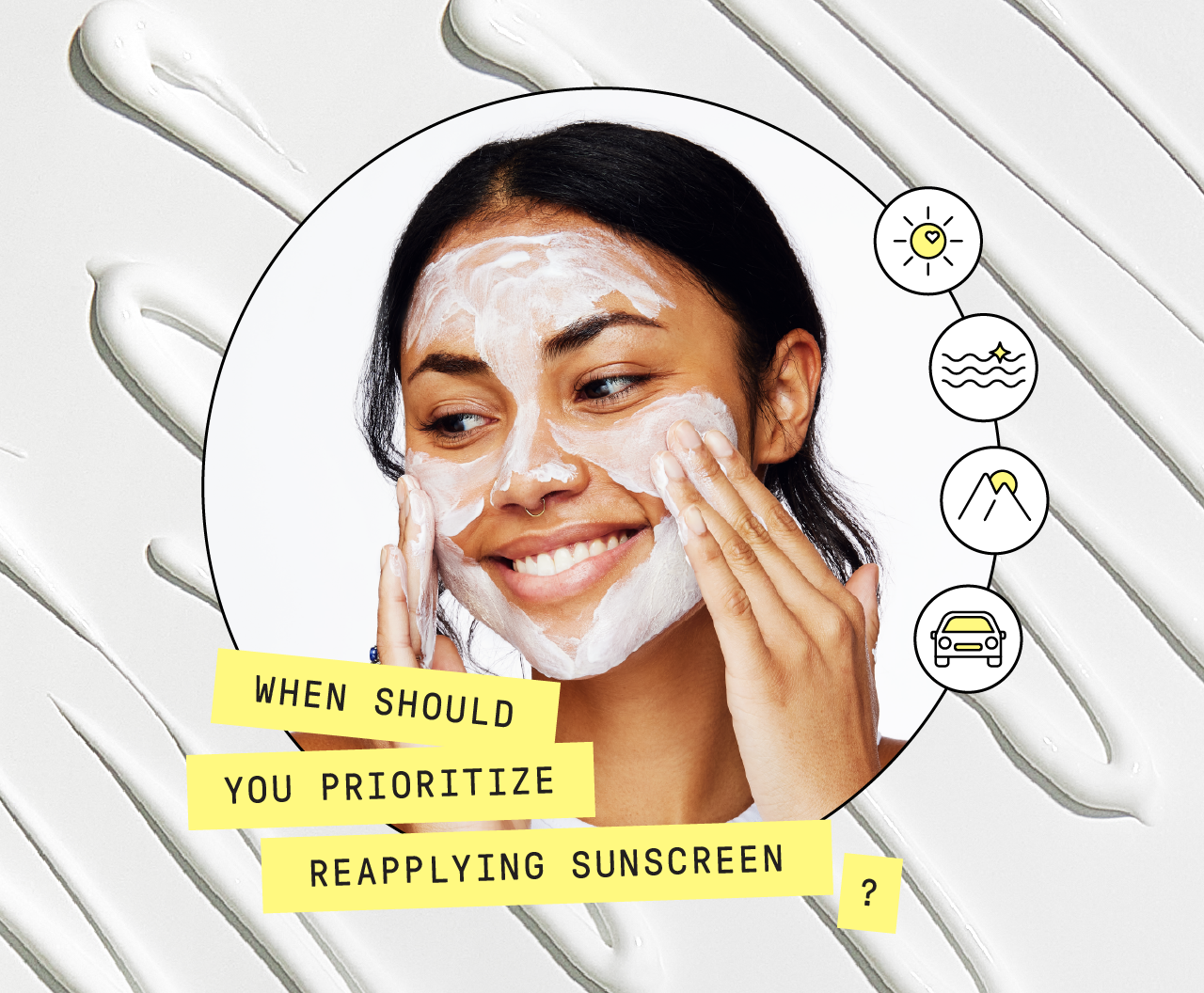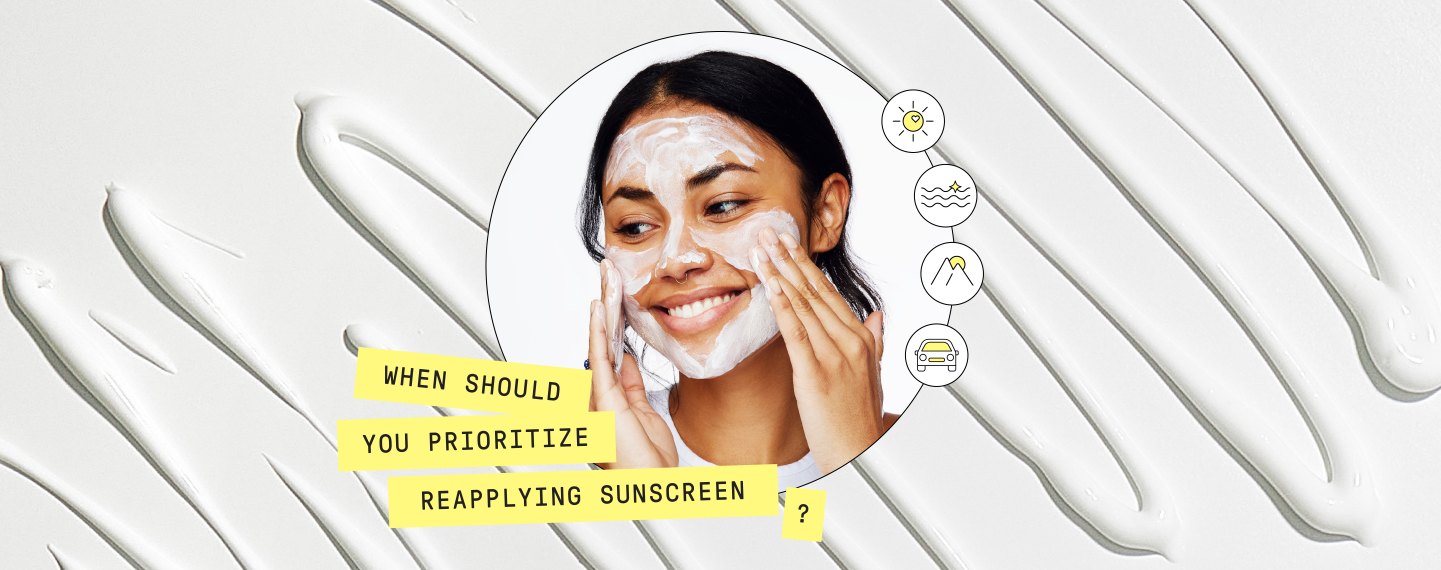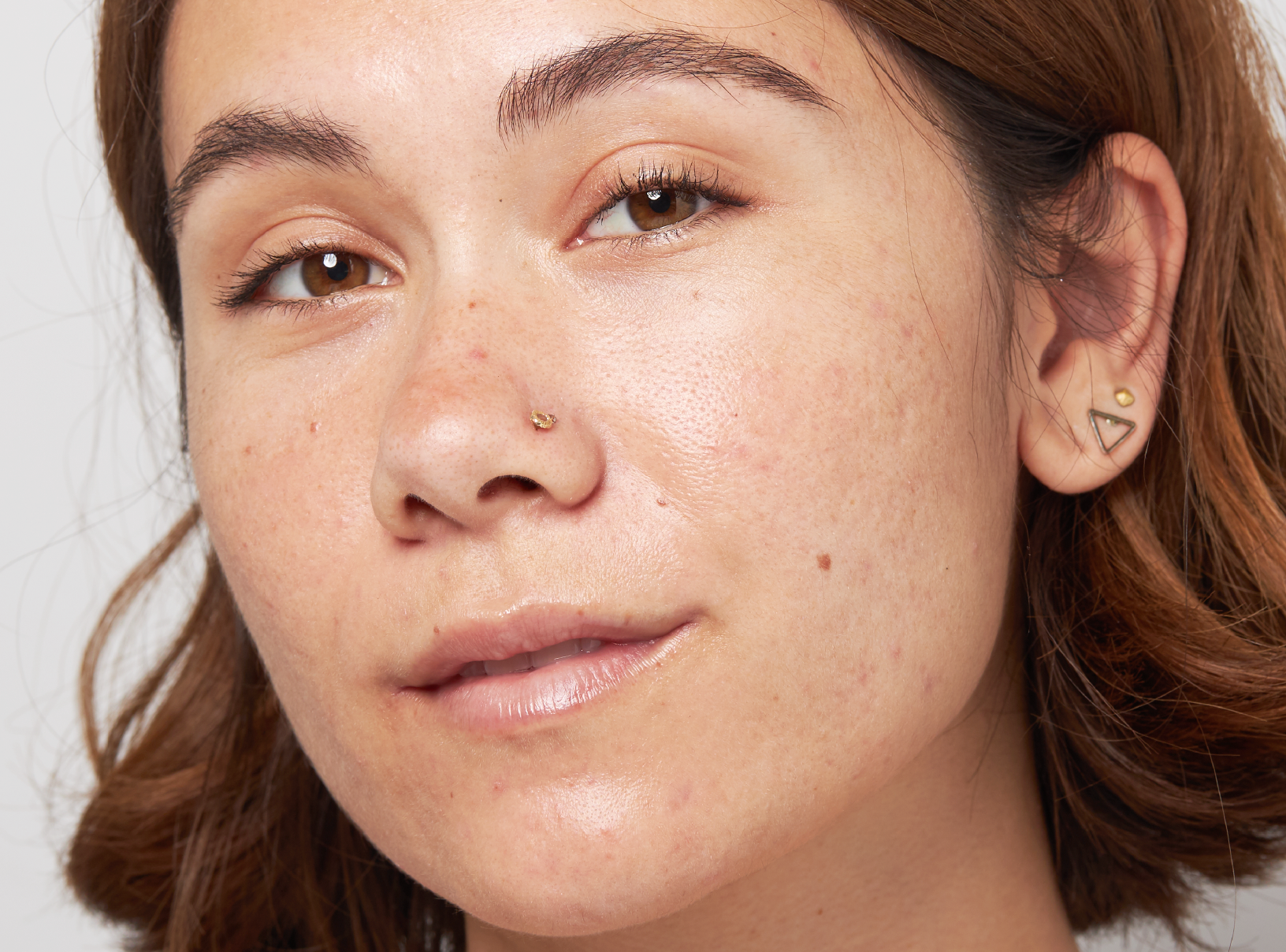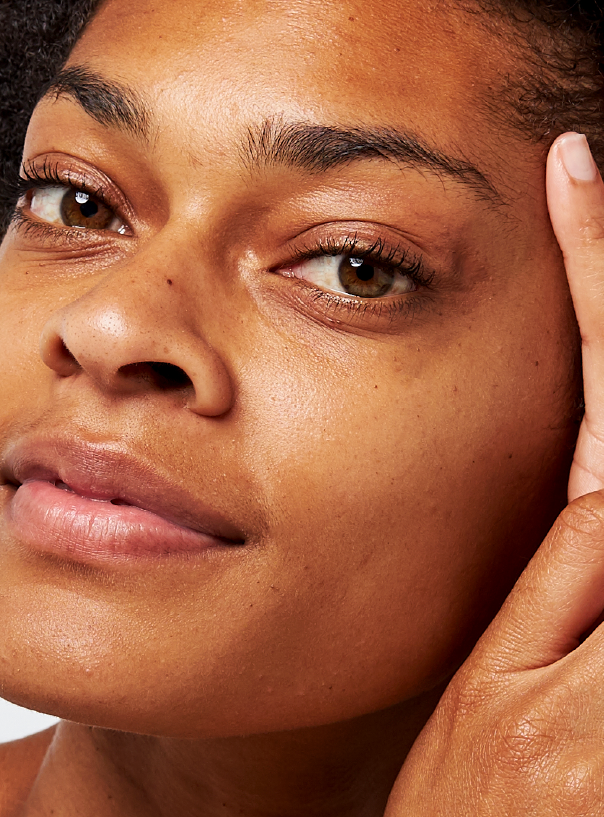Deep Dives
Do You Need To Reapply Sunscreen?


SHARE
Deep Dives
Do You Need To Reapply Sunscreen?
Medically reviewed by Aimee Paik, MD
Written by Annie Lam
Last updated 10/2/2024
You've probably heard by now that sunscreen is a crucial step in your skincare routine. Proper sun protection can help reduce the risk of skin cancer, sun damage, sunburn, and premature signs of aging. We know that applying sunscreen is important, but do you really need to reapply sunscreen too? Here's a dermatologist's take.
How does sunscreen work?
Before we jump into reapplying sunscreen, understanding how sunscreen works can help provide more context on this matter. So there are two main types of sunscreen filters: inorganic and organic (chemical vs. mineral sunscreen) filters.
Organic/chemical sunscreen filters (octinoxate, oxybenzone, octisalate, avobenzone, and more) work by absorbing uv rays and converting them into heat.
Inorganic/mineral sunscreen filters (zinc oxide and titanium dioxide) work by reflecting a small percentage (5-10%) of UV rays, and the rest are absorbed and converted into heat as well.
All sunscreens have an SPF (sun protection factor) that tells you how much protection you'll get from UVB rays. The higher the SPF, the more sun protection you'll get.
Sunscreen filters start to break down with exposure to UV rays, so the longer you're in the sun, the more your sunscreen will break down. This is why many dermatologists stress the importance of sunscreen reapplication when you're spending extended amounts of time outdoors.
When do you need to reapply sunscreen?
Now that you know why you may need to reapply your sunscreen, let's talk about when you should be applying your SPF.
Board-certified dermatologist Dr. Aimee Paik shares her take: "I recommend applying sunscreen at least every morning for regular daily life," she explains.
Using sunscreen daily helps to protect your skin from harmful UV rays, and in some cases, reapplying often may be needed. We know that the idea of reapplying your sunscreen can seem like a lot, so we're going to talk about circumstances where reapplication is important.
When reapplying your sunscreen is important
Here's something to remember: the more sun exposure you get, the more frequently you need to reapply. The main use case for reapplying your sunscreen? “If you are doing prolonged outdoor activities, I would reapply it every 2 hours," says Dr. Paik. Here are some cases where reapplying your sunscreen should be prioritized:
- Spending long periods of time in direct sunlight, like at an amusement park or on a hike.
- Spending time outdoors in the water, like at the beach or pool. It's important to use a water-resistant sunscreen in these situations.
- Long car rides, like road trips during the day. UV rays can still penetrate through windows!
However, if you are indoors most of the day and are away from direct sunlight, regular reapplication may not be as crucial.
Overall, we highly recommend being diligent with reapplying your sunscreen when outdoors, especially when swimming, sweating, or spending time in direct sunlight. Sunscreen reapplication in these circumstances will help keep your skin protected from skin cancer, sun damage, and more.
How do you reapply sunscreen over makeup?
Next is another important question - how do you reapply sunscreen over makeup?
Dr. Paik explains that applying regular sunscreen on top of makeup honestly doesn't really make sense. Instead, "there are good loose powders that have sunscreen in them that can be reapplied over makeup."
Aside from powder sunscreen, there are other options like spray sunscreen or sunscreen sticks that can be used on top of makeup.
One important thing to remember is to ensure you're applying enough. Dr. Paik shares that "the trick here will be making sure you put enough powder on to be effective." Regardless of what SPF product you choose to reapply with, remember to apply generously to ensure you're getting proper protection.
A dermatologist's sunscreen tips
Now that you know a dermatologist's take on reapplying SPF, let's talk about some tips when it comes to picking out a sunscreen.
1. Look for a broad spectrum sunscreen
Broad-spectrum sunscreens are important because they provide UVB and UVA protection. This helps to ensure you're getting proper protection from the sun's rays. We recommend looking for broad-spectrum SPF 30+ for every day.
2. Find a sunscreen that works for your skin type
Whether you have sensitive skin, oily skin, or dry skin, finding a sunscreen that works for you is important! We recommend looking for lightweight, non-irritating formulas.

CUSTOMIZED HYPERPIGMENTATION TREATMENT
Get customized treatment for your dark spots, melasma, and hyperpigmentation.
Note: if you are swimming or sweating, we recommend using a water-resistant sunscreen.
3. Don't rely solely on your sunscreen
While daily SPF is important, it's also important to take additional sun protection measures by wearing protective clothing like hats and seeking shade where you can. Sun safety is crucial to preventing skin cancer and premature signs of aging.
Overall Takeaways
When it comes to sun protection, it's important to wear sunscreen daily to keep your skin protected from UVB and UVA rays. If you're spending long periods of time outdoors, try to remember to reapply your sunscreen every two hours to keep your skin protected, especially when swimming or sweating. Don't forget to take additional sun protection measures like seeking shade and wearing a hat so you can enjoy the outdoors safely!
Like what you just read? Sign up for our email list to get the scoop on skincare science delivered straight to your inbox.

Deep Dives
A dermatologist shares his thoughts on the recent studies about benzoyl peroxide and benzene.
Read More
Education
What is milia?
What is milia? Today, we’re jumping into one type of bump that you may have heard about most commonly in infants — milia.
Read More
Education
Best moisturizer for acne-prone skin
If you have combination acne-prone skin, figuring out which moisturizer is best for your skin might be tough. In this guide, we break down the best moisturizer for combination, acne-prone skin.
Read More